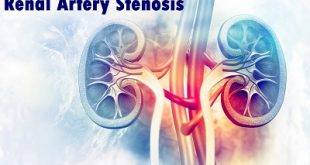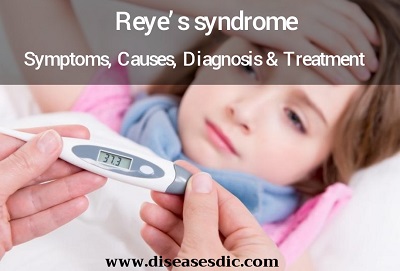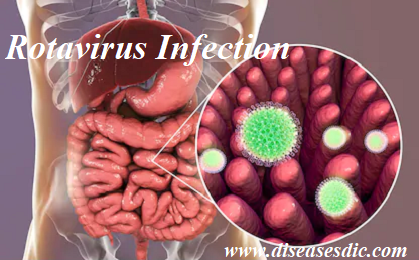Introduction Rhabdomyosarcoma (RMS) is a type of soft tissue sarcoma (tumour). Fewer than 60 children are diagnosed with rhabdomyosarcoma in the UK each year. Most of them are younger than 10 years old. It is more common in boys than girls. More children than ever are surviving childhood cancer. There …
Read More »Refsum Disease – Causes, Pathophysiology and Complications
Definition Refsum disease is a genetic disorder that affects the metabolism of the fatty acid phytanic acid. When phytanic acid accumulates, it causes a number of progressive problems, including retinitis pigmentosa, peripheral neuropathy, anosmia, deafness, cerebellar ataxia and elevated protein concentrations in the cerebrospinal fluid in the absence of an …
Read More »Renal Artery Stenosis (RAS) – Pathophysiology, Risk factors and Causes
Definition Renal artery stenosis (RAS, sometimes also called renal artery disease or kidney stenosis) occurs when the two main vessels that deliver blood to the kidneys become stiff or narrowed due to vascular disease. RAS is a type of atherosclerosis or hardening of the arteries, which occurs when fatty cholesterol …
Read More »Raynaud’s Phenomenon – Symptoms, Treatment and Prevention
Definition Raynaud’s phenomenon (RP) is a disorder resulting in vasospasm, a particular series of discolorations of the fingers and/or the toes after exposure to changes in temperature (cold or hot) or emotional events. Most people with RP have sensitivity to cold. Skin discoloration occurs because an abnormal spasm of the …
Read More »Rectal prolapse- Definition, Causes, Types, and Treatment
Definition Rectal prolapse is when part of your rectum sticks out through your anus (back passage) to form a lump. The rectum is the last part of your bowel. You may notice the rectal prolapse when you’re having a bowel movement. But it can also happen when you cough or …
Read More »Reye’s syndrome- Symptoms, Causes, Diagnosis and Treatment
Definition Reye’s syndrome is a rare but serious disease that is characterized by cerebral and hepatic impairment that occurs after influenza, a respiratory infection, or chickenpox. Reye’s syndrome mainly affects children and adolescents. It sometimes affects infants, and very rarely affects adults. It appears most often in the wintertime when …
Read More »Rubella – Overview, Risk Factors, and Prevention.
Overview – Rubella Rubella is commonly known as German measles or 3-day measles — is an infection that mostly affects the skin and lymph nodes. It is caused by the rubella virus (not the same virus that causes measles). German measles spreads when people breathe in virus-infected fluid, such as …
Read More »Rotavirus Infection – Causes, Symptoms, and Diagnosis.
Overview – Rotavirus Infection Rotavirus Infection is caused by Rotavirus, a contagious virus that causes diarrhea. It’s the most common cause of diarrhea in infants and children worldwide, resulting in over 215,000 deaths annually. Before the development of a vaccine, most children in the United States had been infected with …
Read More » Diseases Treatments Dictionary This is complete solution to read all diseases treatments Which covers Prevention, Causes, Symptoms, Medical Terms, Drugs, Prescription, Natural Remedies with cures and Treatments. Most of the common diseases were listed in names, split with categories.
Diseases Treatments Dictionary This is complete solution to read all diseases treatments Which covers Prevention, Causes, Symptoms, Medical Terms, Drugs, Prescription, Natural Remedies with cures and Treatments. Most of the common diseases were listed in names, split with categories.







